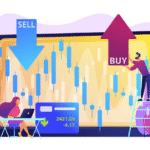The Role of Emotions in Trading: How to Stay Calm and Collected
Emotions play a significant role in trading decisions, often influencing traders’ actions more than logic or analysis. It has been recognized that emotional trading can lead to impulsive decisions that undermine a trader’s success. Fear and greed are two primary emotions frequently observed in traders. Fear of missing out can drive traders to enter positions too quickly while panic can lead to sudden sell-offs during market downturns. Similarly, excessive greed may cause traders to hold onto winning positions longer than advisable, hoping for even larger profits. Therefore, understanding how emotions affect trading choices is essential for long-term success.

Recognizing Emotional Triggers
In emotional trading, awareness of triggers is vital. Each trader possesses unique emotional responses to market fluctuations, making self-awareness crucial. It is recommended that traders keep a trading journal to document their emotional states during trades. Such documentation can reveal patterns in emotions that may lead to poor decision-making. For example, a trader may notice that anxiety arises during volatile markets or that overconfidence develops after a series of winning trades. By identifying these emotional triggers, traders can develop strategies to manage them effectively. Techniques such as mindfulness and deep breathing can also assist in calming the mind during stressful trading situations.
Developing a Trading Plan
A well-structured trading plan is one of the most effective tools for mitigating the impact of emotional trading. With a comprehensive plan, clear guidelines can be established regarding entry and exit points, risk management, and trade sizing. When a trading plan is followed strictly, emotions are less likely to influence decisions. Many seasoned traders advocate for backtesting their strategies to ensure they are sound before live trading. By establishing a plan and sticking to it, traders can reduce their reliance on emotional responses and maintain their focus on overall goals.
Implementing Risk Management Strategies
Risk management strategies should also be prioritized to combat emotional trading. Setting stop-loss orders and position limits can help minimize losses and prevent emotions from taking control during adverse market movements. By limiting potential losses, traders can approach the market with greater confidence and reduce anxiety. This confidence can lead to more rational decision-making, ultimately benefiting trading outcomes. It is essential for all traders to recognize that losses are part of the trading process. Accepting this reality can alleviate the emotional burden associated with losing trades
Mastering Emotional Control
In conclusion, emotional trading remains a significant challenge that traders face regularly. Through awareness of emotional triggers, a structured trading plan, and effective risk management strategies, traders can cultivate discipline and maintain a calm mindset. Mastering emotional control is vital for sustainable trading success. By developing techniques to manage emotions, traders can approach the market with clarity and confidence, enhancing their decision-making process and ultimately improving their trading outcomes.
Learn more to Trade Smarter!
Top 5 Trading Tools Every Forex Trader Should Use Daily
Top 5 Trading Tools Every Forex Trader Should Use Daily Successful forex trading requires more than just a strategy. Traders must use the right trading
How TikTok Is Shaping the Way Gen Z Learns About Forex
How TikTok Is Shaping the Way Gen Z Learns About Forex TikTok is no longer just a platform for entertainment—it has become a hub for
Gold vs Forex: Which Is More Lucrative in Uncertain Times?
Gold vs Forex: Comparing Profit Potential, Risk, and Accessibility The debate around Gold vs Forex ultimately comes down to an investor’s risk tolerance, goals, and
How to Read Forex Charts Like a Pro
How to Read Forex Charts Like a Pro Forex charts are the backbone of every trader’s decision-making. Firstly, they visually show currency price movements over

CFD Trading Explained: What It Is and How It Works
CFD Trading Explained: What It Is and How It Works Contracts for Difference, more commonly known as CFD Trading, represent a modern way of engaging
SmarTrade Featured in Manila Standard for Bringing Back Exclusive Trading Seminar to Manila
SmarTrade Featured in Manila Standard for Bringing Back Exclusive Trading Seminar to Manila SmarTrade has once again proven its leadership in financial education as it
